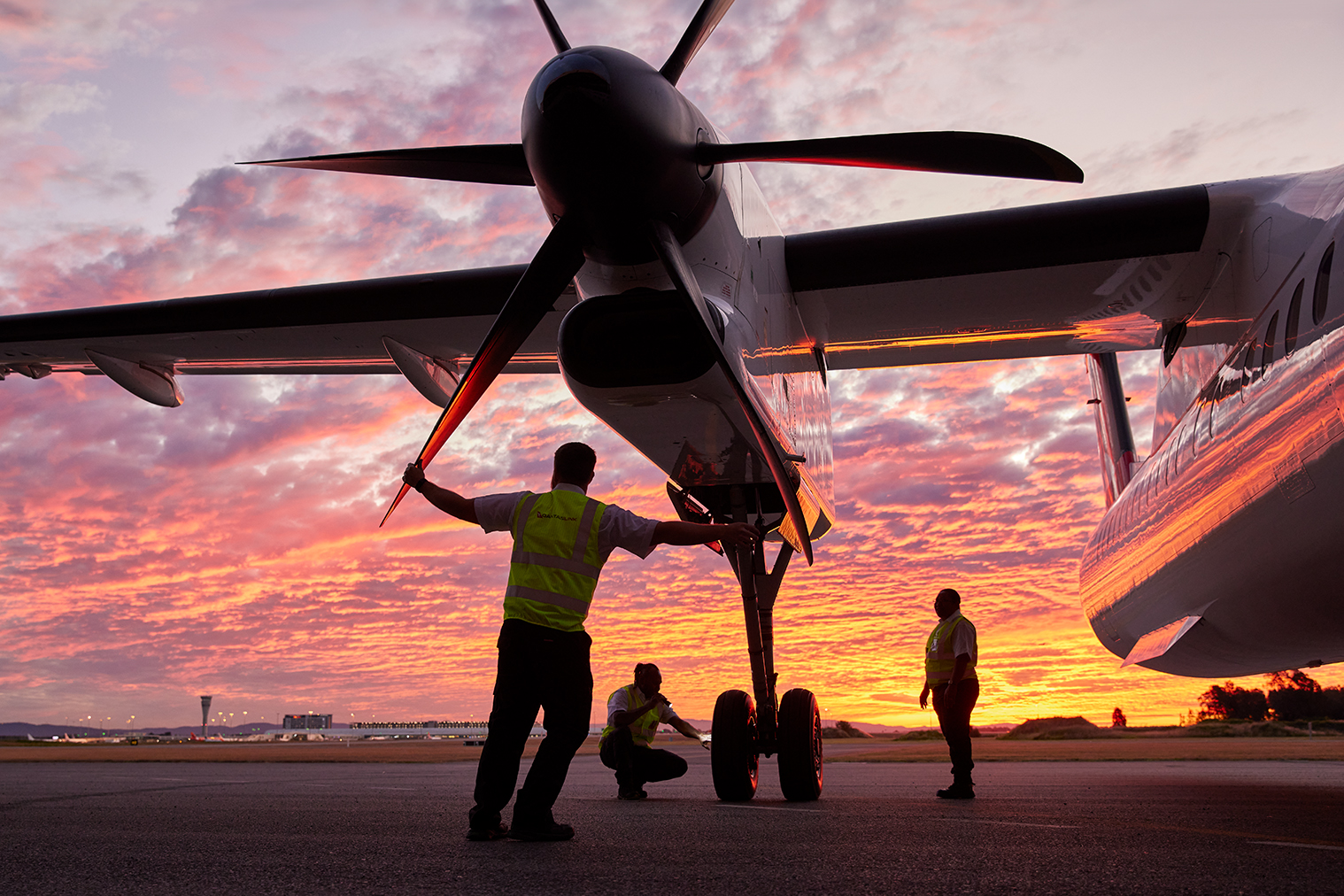In 2019, we were one of the first airlines in the world to announce our target of net zero emissions by 2050 and capping our net Scope 1 and Scope 2 emissions at 2019 levels. In March 2022, we announced emission targets for:

Our approach to sustainability
We recognise that air travel is currently not environmentally sustainable. That’s why we are committed to taking steps – in the air and on the ground – to reduce our impact on the environment.
More information on our climate and environmental initiatives can be found here and in our annual Sustainability Report.
Sustainable Aviation Fuel
The use of Sustainable Aviation Fuel (SAF) is one of the central levers to achieving our net zero by 2050 target. With long-haul routes accounting for the majority of the Group’s emissions profile, SAF is currently the only viable technology/decarbonisation option available for Qantas’ long haul flights. Our current use of SAF is modest, comprising 0.2% of our fuel use and is being accessed by Qantas for our Heathrow flights. Our target is for 10% of our fuel use to come from SAF by 2030 (around 600mL of unblended SAF a year) and approximately 60% by 2050.
We’ve established Australia’s first coalition program to support reducing the environmental impact of aviation through the use of SAF. Climate action is more effective together, and the Qantas Sustainable Aviation Fuel Coalition program offers our corporate partners the opportunity to help contribute to the development and future use of SAF by contributing to the incremental cost of acquiring SAF.
We have built on our existing SAF investment partnership with Airbus to establish a $400 million Climate Fund, which is dedicated to investing in the development of solutions to support us in meeting our sustainability targets and helping reduce our impact on the planet – in the air and on the ground (including investments to accelerate the development of an Australian SAF industry).
We are also offering a service to freight companies and forwarders to allow them to receive the environmental attributes from the SAF we have purchased.
If you are interested in partnering with us to help decarbonise your supply chain, please contact us via email.
Learn more about Sustainable Aviation Fuel (SAF)
Find out about Qantas Group’s SAF Coalition program


